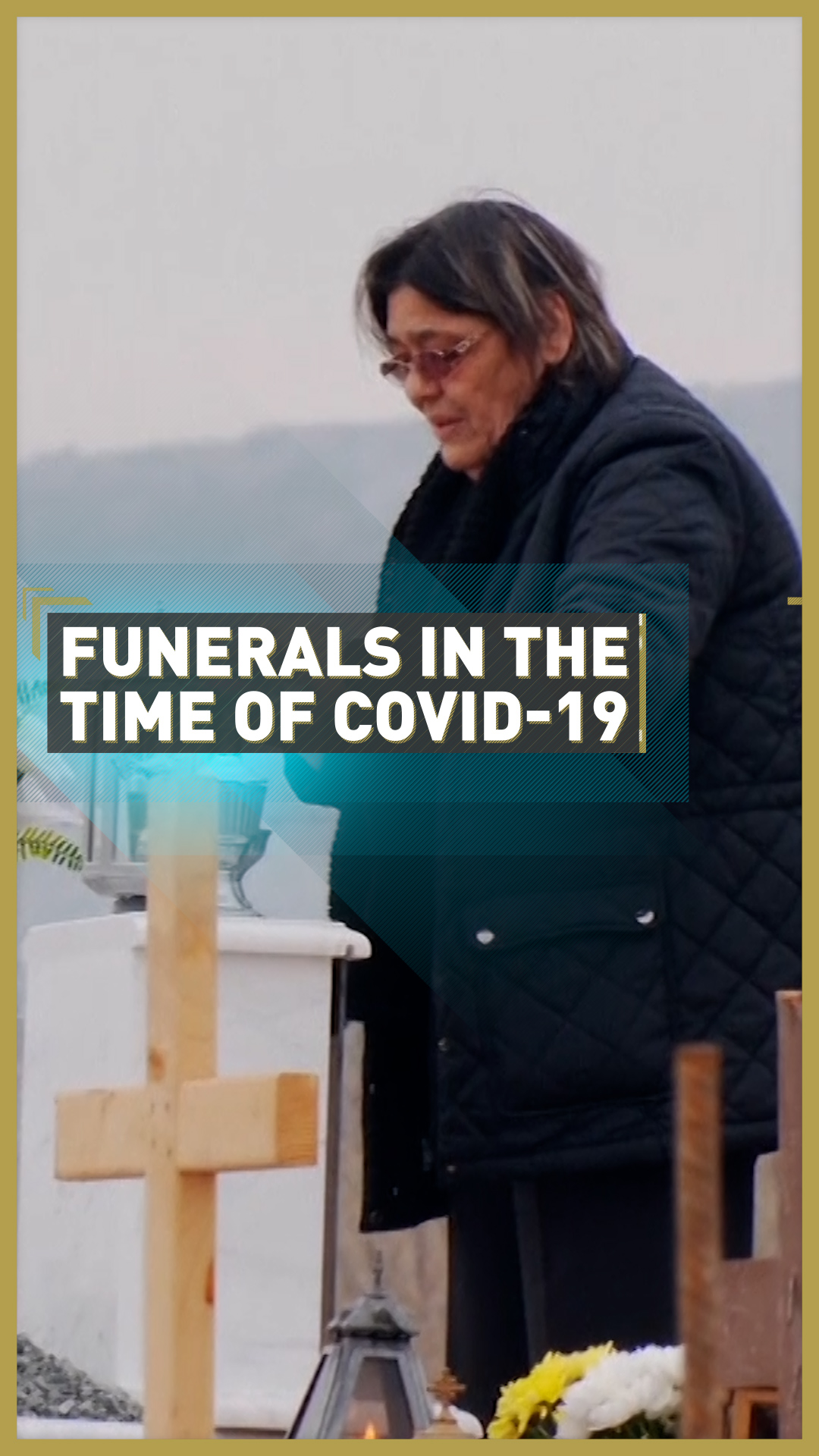02:33

In a crematorium in Saxony, Germany, the caskets are stacked one on top of the other in piles of three. Most will be for victims of COVID-19.
Meissen county, the region where the crematorium is located, is one of the hotspots for the pandemic in the country. Its infection rate is three times the national average.
And in the Meissen crematorium, staff are faced with the daunting task of cremating more than 300 bodies – three times the number of dead they had the same time last year.
"The crematorium is full, as you can see, the caskets are not only stacked one by one, but three times high. Here [in the memorial hall], there are also many deceased stored, we use all the space we have," Joerg Schaldach, the head of the Meissen crematorium, told AP.

Caskets stacked on top of each other in Saxony, Germany. /AP
Caskets stacked on top of each other in Saxony, Germany. /AP
In normal times, the staff of the crematorium would get the bodies ready to be shown to loved ones before cremation – a task that is now impossible.
"It's our business. We've seen death many, many times," Schaldach added.
"The problem we see is that the grieving relatives need our help. And at the moment there's a greater need for words of consolation because they've given their deceased loved ones to the ambulance and then they never see them again.
"They get the urn, and that is the big problem that this grief management does not take place, you cannot be with your loved one while they are dying."
Saxony is not the only region in Europe trying to find ways to deal with the growing number of bodies caused by the second wave of COVID-19.
In Surrey, UK, 170 bodies are being held in a temporary mortuary after the hospital mortuaries became full.

Chrysanthi Botsari visiting the grave of her husband in Thessaloniki, Greece. /AP
Chrysanthi Botsari visiting the grave of her husband in Thessaloniki, Greece. /AP
And in Thessaloniki, Greece, city authorities have required the bodies of the victims of the virus to be buried in a separate section of the local cemetery from their loved ones.
This is because of a Greek tradition that requires the dead to be moved to an ossuary after three years.
But now, the bodies of the people who suffered from COVID-19 will remain buried for 10 years instead of the traditional three.
Thessaloniki has a higher number of people infected by COVID-19 than Athens, the country's capital, despite being a quarter of its size.
"They didn't tell us where he would be buried," said, Chrysanthi Botsari, a widow who recently buried her husband in one of these separate lots.
"They just said he can't be in the cemeteries with the others, because he has died from the coronavirus. This to me is unacceptable, unacceptable. Inhuman. All these people died alone, without help."
Video editor: David Bamford.
Source(s): AP

